Fiction
Nonfiction
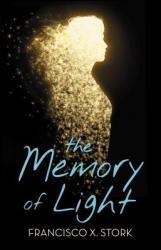
I've read many teen fiction books, but this book was by far the most honest about dealing with mental issues. There are no easy answers and it is a hard process to fight through. The main character Vicki really wants to be normal, but she is having a hard time dealing with school and her parents. She decides to commit suicide. She is discovered and rescued. She commits herself to a local mental institute to see if she can find a way to deal with her depression. Once there she meets other teens that are also dealing with difficult mental issues. Having dealt with depression in my own life it is nice to see that books are being published about mental health issues, especially books that target teens. The descriptions of how depression affect Vicky were really well done. I will say that there are some moments of teen angst, but overall the book was excellent.
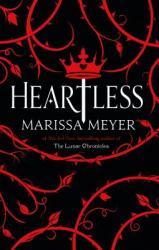
In Marissa Meyer's (The Lunar Chronicles) new standalone novel, she explores the Queen of Heart's origin story. Lady Catherine Pinkerton wants nothing more than to open her own bakery with her maid, Mary Ann. But as the Kingdom of Hearts operates in a style similar to that of Victorian England, Catherine finds herself without the money or permission to do so. Worse yet, she's being courted by the king, a silly man that she has little interest in marrying, though she is under constant pressure from her mother to accept his advances. And then, at a royal ball, a hot new court jester with murky motivations appears alongside a Jabberwock and Catherine's life and the Kingdom of Hearts will never be the same.
This was a pretty hotly anticipated read for me, as I adored the Lunar Chronicles. And a lot of the best things about the Lunar Chronicles were present here too: Wonderland and its delightful, sinister, and delightfully sinister characters are definitely a part of the story without overwhelming the character development or seeming trite. It was brilliantly executed. The romance, for me, was just a bit overbearing, and I had a hard time investing in Jest, the love interest. He was introduced as a magician, and then all I could envision whenever he was around was GOB Bluth dancing around to Final Countdown. Decidedly not sexy. We also didn't really learn enough about him for me to ever really care about his fate. I really enjoyed the other parts, though - Catherine's struggles to do right by her parents while preserving her dreams of opening a bakery were realistic and relatable, and her transition from hero to villain was pretty believable in the context of everything that happened. Warning: the food is well described - this book will make you eat any and all baked goods in your house. Oh, and the last 100 pages, the end game, was fantastic. It's a lot of fast paced action laced with emotion, and it's marvelous.
While there was a bit too much romance in this one for my taste, I think those that enjoy a bit more romance in their fantasy reads, or those that love a well-written, somehow inventive fairy tale retelling will love this one. I liked it - 3 stars.
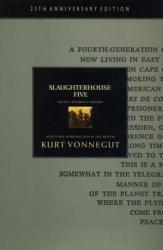
"So it goes..."
You may be thinking that based on the title it is the fifth book in a series of horror novels, but I assure you that it is not. Slaughterhouse-Five is a very thought provoking and poignant anti-war novel that has elements of science fiction, including 4th dimensional time travel and aliens. It’s a nonlinear story that follows a man named Billy Pilgrim as he travels throughout different moments in his life, weaving back and forth through differing time periods. He travels from his time as a chaplain’s assistant in World War II to his normal life with his wife and children to being an exhibit in an alien zoo on the planet Tralfamadore.
By becoming “unstuck in time”, as Billy puts it, he is able to relive these moments in his life and reflect upon them more deeply. This book is one of the best representations of 4th dimensional time travel that I've come across, and if you ever struggle to grasp the concept of time as the 4th dimension, as I do from time to time, then this book will certainly help create a better understanding of it. The book centers around Billy Pilgrim’s experiences during the war and all of the atrocities that he has seen, culminating at the end with the Bombing of Dresden, a moment which influences the rest of his life.
By being told out of chronological order, the structure of the book drives the importance and impact of the moment rather than just describing what happens next and it creates a sort of puzzle that the reader must put together. It is full of satire, wit, and black humor that is vintage Vonnegut and is one of the strangest meditations on war and humanity. If you want an extremely thoughtful book that challenges your perspective, then I highly recommend Slaughterhouse-Five by Kurt Vonnegut.
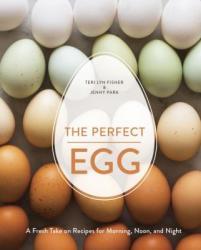
We are looking at ways to eat less meat and have more meatless meals. Eggs are kind of middle ground, since they are an animal product, but in our home, we'd consider an egg meal to be meatless. My other reason? We have a few laying hens, and sometimes I feel like the eggs on hand vastly out-number the ideas I have to use them. My hope with this book was to find some new ideas that would help me use our farm-fresh eggs in different, tasty ways.
The book is beautifully photographed. Each recipe (with the exception of a few technique tips in the first chapter about things like boiling eggs) has a corresponding photo. Even though beautiful photography can be a setup for a 'Pinterest fail', I do appreciate the attention to detail and the gorgeousness of all the final products. The photographs help me decide which recipes might most appeal to my family.
This book does include detailed recipes, but the authors also encourage you to make substitutions and adjustments here and there. This is how I cook all. the. time., so that resonates well with me. If you prefer to follow recipes exactly, you can, but I appreciate the....permission?....to take a recipe and make it my own.
One thing I'm happy to tell you is that this book is not full of breakfast dishes...or strictly egg dishes. Sure, it has both, but it also has recipes that will work throughout the day. Some of the recipes are for breads, soups, and even some spreads - from mayonnaise to an egg butter. I found many recipes that are different from anything I've ever made or eaten, so I am happy with the scope. I like to try foods from various cultures, and this book offers many options in that regard as well.
If you like to cook, if you like eggs in general, and if you're looking for new ideas and inspiration, then I think The Perfect Egg is the perfect place to get a little inspiration!

I have gardened for a very long time. I grew up around gardens, and since I became a (supposed) grownup, I've almost always had one. These days, I find myself in a rather silly situation - five acres of land, but the deer have gotten so comfortable that I can't garden here...well, I can, but the deer eat all the food we grow.
The only success I have these days is in enclosed spaces, but enclosing a space can get expensive. With some materials we had on hand, we have enclosed a small, 15x30 enclosure for gardening.
Enter the book, The Postage Stamp Vegetable Garden, by Karen Newcomb. It is written specifically for those gardening in tight spaces, including containers, flower boxes and small garden plots. I thought this book did a good and thorough job of explaining the process, yet I never felt bogged down by 'too much information'. I liked the information at the beginning of the book that provided some history about different forms of intensive gardening, and I like the way the book is organized through the seasons - preparation of site and soil, adding amendments and planting patterns that help you get the most from a small space, such as companion planting and inter-planting earlier and later crops. Ms. Newcomb even provides specific plant variety recommendations to increase the chances of success, as well as sources for the varieties she recommends.
To me, the overall message of the book is that there are a few different ways to succeed. There are guidelines and suggestions, but no rigidity. If you can't get one soil amendment in your area, there are suggestions of others that will have similar effect. If you want to start your own seedlings, the information is there, but there are also some tips for purchasing ready-to-plant seedlings. There are multiple layout ideas - none of which I would use precisely as shown, but all of which help illustrate the author's suggestions that you plant taller plants to the north (so they don't shade shorter plants), etc.
I like this book, and I appreciate the flexibility it embraces. Having gardened a long time, I have used different methods in different locations with varying results, and I think the author did a good job of presenting small-scale, intensive gardening in a broad and informative way.
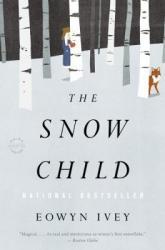
Set in the 1920’s, this is the story of Jack and Mabel, a childless couple homesteading on the Alaskan frontier. The workload is never-ending, and without children to help with plowing, planting and harvest, they struggle not only to survive, but to avoid losing themselves to despair and disappointment. It is a story not only of survival and grit, but also of the kindness found in a community of like-minded individuals and families. This theme is typical of much historical fiction about western expansion and pioneer life, but this story holds an unexpected and delightful twist, where magic, reality and fairytales intersect. The first snow of the year is met with a playfulness that is not typical of Mabel and Jack. They end their snowball fight by building a snow-child near their cabin, complete with mittens, a hat, and arms made from twigs. The next day, they discover that their snow child was destroyed during the night – likely by wild animals. Their journey from that point is full of hope and expectation. The story has a dream-like, ethereal quality, yet the author maintains the sense of solidity that is required for historical fiction to work. The pace is slow, but fits well with the time and place. I sincerely enjoyed this author’s first novel. It made me think about the importance of accepting others as they are – always an important consideration. I have Eowyn Ivey’s second book in my “to read” stack right now, and will eagerly read her future offerings.

This Arthurian tale is about noble knights, impossible quests and miracles. Camelot has fallen. King Arthur Pendragon and his Round Table of invincible knights have been destroyed. For tens years now the land has spiraled into chaos and destruction. Ruled by the evil Morgana and her hired barbarians, the people have no hope - all is lost. Guinevere, the Queen of the Britons, is hidden away in a far away abbey, safe from the assassins of Morgana - or is she? And where is Merlin the Wise, Arthur's trusted adviser? That old wizard was at the Battle of Camlann when the King fell, but has disappeared. Morgana's spies are searching the land for him and has vowed to take his head. A merchant ship approaches the shores of Albion hoping to avoid the Saxon Sea Wolves that hunt these waters now. But they're spotted, boarded and the butchering begins. Then two passengers emerge from the ship's hold. Like banshees from hell they move in deadly unison, destroying everyone in sight. Sir Percival, the last Knight of the Table, has returned.
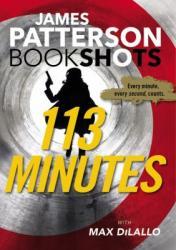
I was very curious to try one of James Patterson's Bookshots. He called them a pulse pounding thriller from beginning to end. I will say it lived up to the billing! I was immediately into the story and kept wondering what was going to happen next. 113 Minutes started off with a teenage boy dying from an overdose from crystal meth. Then there is a bank robbery, a heist of over a million dollars at a country club, and then a shootout with the Feds! Whew!!! I really enjoyed this one and can't wait to read more Bookshots!
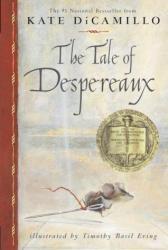
I started off in love with this book. However, as it progressed I lost a little bit of interest in it. I guess Miggory Sow and Roscuru didn't appeal to me as much. But it finished strong. Great narrative voice and well paced. Well done overall.
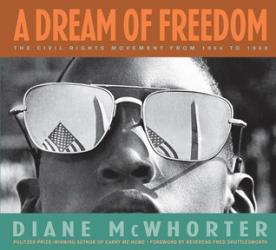
This book recounts the tumultuous Civil Rights Era. It covers everything from the Montgomery Bus Boycott, Freedom Rides, Sit-ins, Martin Luther King, Jr., the Black Panthers, and much more. It's well organized, engaging, and powerfully written. I learned so much! This book is classified as juvenile nonfiction, but only upper elementary would likely benefit from it. It's better suited for teen nonfiction and of course for adults like me.
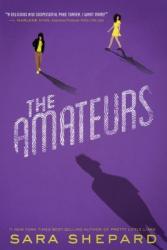
Seneca's life revolves around solving cold cases and unsolved murders. As soon as she found the Case Not Closed website online, she becomes obsessed to the point where she stops paying attention in classes and risks expulsion from her university. But when the sister of Helena Kelly, a murder victim who disappeared mysteriously in a sleepy Connecticut town, reaches out through through the website, Seneca knows all bets are off. Along with some friends from the site, she finds herself in Connecticut for spring break trying to solve the mystery of Helena Kelly's disappearance.
I recently read a book that was billed as "Twin Peaks" meets "Gossip Girl" and it sucked. I figured this one might fill that now existent hole in my life. While it was a bit more "Gossip Girl" than "Twin Peaks", the book was exactly what I wanted it to be: brainless but entertaining with a good mystery. It dragged a little in the middle, but otherwise, the pacing was pretty fast especially as the clues start to come together. The dialog is breezy and light, the mystery and background of the characters is, for the most part, pretty dark and the cast is diverse but underdeveloped. Shepard totally fooled me with the killer - I thought I knew who it was, but I had no idea.
If a slightly soapy murder mystery sounds like it could be your thing, look no further. I enjoyed this one - 3 stars.
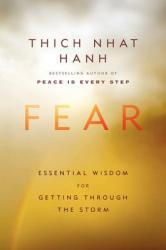
This is the kind of book you need to read more than once and perhaps even take notes. Its take on the sources of fear and how to free yourself from it are spot on. The answer is to realize certain truths about life, be mindful, aware, and meditate. These aren't easy fixes, but it gives me hope that with some work I will be successful.
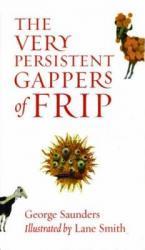
“The Very Persistent Gappers of Frip” is a mere 82 pages, and features the witty lyricism of George Saunders, National Book Award finalist, and the whimsical illustrations of Lane Smith. One might call the story an adult fairy-tale, but I believe both young and old will find it humorous and intriguing.
The story introduces the reader to round, baseball-sized creatures called gappers. They are bright orange, not particularly intelligent, and simply love goats. Saunders explains that, “when a gapper gets near a goat it gives off a continual high-pitched happy shriek of pleasure that makes it impossible for the goat to sleep” (2). For the three families that make up the town of Frip, this is bad news. Goats are their livelihood and so the children of these families must brush gappers off their goats eight times a day to keep their goats happily producing milk. The gapper trouble increases for Capable and her father when a slightly more intelligent gapper takes charge of the goat-loving critters. He decides that the whole lot should gang up on a single house rather than splitting themselves between the three houses of Frip. The other two families rejoice in their gapper-less good fortune, but poor Capable and her goats are quickly overrun by the united forces of gappers.
This story is funny, very creative, and poignant in its understanding of human nature. It expresses the importance of community and kindness, and in a way that sounds only a little preachy. Overall, “The Very Persistent Gappers of Frip,” is definitely worth a read. It requires a single sitting to finish, and rewards the reader with plenty of laughs and a renewed sense of what it means to be a neighbor.
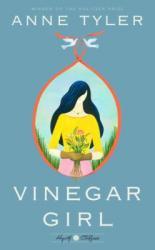
Vinegar Girl is a modern retelling of Shakespeare's The Taming of the Shrew. In this version, Kate Battista lives a stagnant life - she got part of the way through her college degree, works a job that she hates, and lives with her scientist father and younger sister, Bunny. Kate's father starts to shake things up when he suggest that Kate marry Pyotr, his research assistant at the lab who is in desperate need of a green card.
I was pretty curious about how this book was going to shake out as the very premise is extremely offensive in modern times - it's really unpalatable to think of a strong woman being "tamed" by her husband. And unfortunately, the book does sort of go there. Pyotr did and said a few things that made him Dead To Me, and on the whole, I found most of the characters to be pretty unlikable. Kate herself was interesting and relatable much of the time, though the circumstances of her situation were pretty avoidable. The epilogue was cute, the writing fine, and the narration was great. I just think it could've been better - after all, 10 Things I Hate About You (don't judge) was a pretty successful modern retelling of the story. Sadly, for me, this book was just ok. 2 stars.
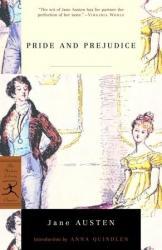
Reader beware, this is my favorite book. This is probably the fifth or sixth time I've read it. It's observant, subtle, and cleverly written. I come away with something new every time I read it. This time I felt for Elizabeth upon coming to the realization that her father was greatly to blame for the shortcomings of her three younger sisters. Oh, and Mr. Darcy's subtle devotion to her was more apparent to me this time around. It's easy to imagine the BBC version and characters while reading, but this book - like most books - is more richly constructed than the mini-series.
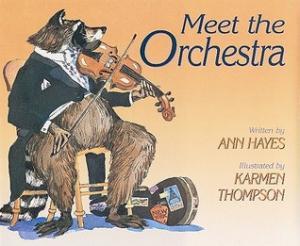
This a great introduction to the orchestra and it's instruments for the lower grades. My 7 year old loved that there were animals playing the instruments. It helped her better absorb the information. She is learning the cello and loved that a koala plays it in the book. Overall, very well presented, fun, and informative.
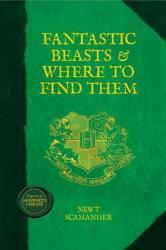
Cute cute cute! This is a fun book that is chock full of imagination. I liked that is was inscribed as Harry Potter's copy but Ron Weasley had amusing handwritten notes in it. I think this book may be best enjoyed by devoted Harry Potter fans. If you've seen the Fantastic Beasts movie, you may enjoy trying to pick out the beasts featured in it. Fun!
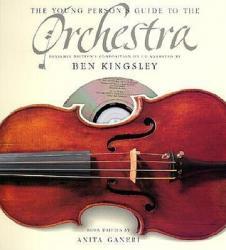
This is a very informative book about the orchestra, their instruments, and the music they play. I learned a lot from it. I liked the section about composers probably the best, although the history of orchestras was fascinating as well. This book is classified as juvenile nonfiction but it's equally good for teens and adults.
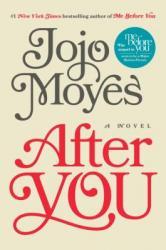
It’s been 2 years since Will Traynor’s death. Louisa Clark traveled for a while, but now she is stuck in a bad job and just treading water. Even surviving a fall from the rooftop of her apartment building doesn’t shock Louisa into wanting to experience more of life. Louisa joins a support group to deal with her grief and develops a relationship with the paramedic who saved her. However, it’s the arrival of teenage girl with a link to Louisa’s past that sets her life into a spin and changes it in more ways than she could ever have imagined. After You, Jojo Moyes’ sequel to Me Before You, is a well-written, realistic look at dealing with grief and all the curves life throws at a person. Fans of the first book will feel like they are catching up with an old friend. Be prepared to cry and laugh out loud as you spend more time with this loveable character.
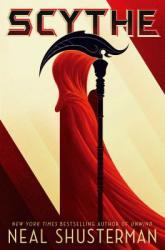
In 2041, what we currently call "the cloud" morphed into a version of AI called "the Thundercloud" that was able to solve all of the world's problems. Death has been basically eliminated - all manner of illness and injury can be cured, and pain is a thing of the past. Thundercloud stops the effects of global warming, and calculates how to best use the world's resources so that no one goes hungry. It's also made government completely irrelevant. However, to stop overpopulation, people called Scythes have to glean, or permanently kill, random members of the population. Scythe follows two teens, Citra and Rowan, as they reluctantly apprentice to become a Scythe.
I think Shusterman has another "Unwind" type of hit on his hands. As the book develops, the seemingly Utopian society gets darker and darker and more dystopian - but really only because of the gleaning. The Scythes have a rich history, and it was interesting to learn about them and their different approaches to gleaning. The book is absolutely at its best when examining humanity and the moral obligations and quandaries that come along with being a scythe - I ended up reading the occasional sentence out loud to my partner, which is something to which I rarely subject him. The ethical implications of gleaning are pretty huge, and the examination of killing and its purpose are what really makes the book a fun read. Also, no surprises here, Shusterman, a National Book Award winner, can WRITE.
I did feel that the book had some premise issues. As the book explains it, your chances of being gleaned, or even knowing someone who has been gleaned, are pretty rare. So why is gleaning even necessary? The book addresses this, but the answer was not satisfactory. I can also easily think of solutions to this problem that don't involve random killing. For example, why not impose some sort of birth limit (people have dozens of children in this version of the future)? Or maybe only those that have children are eligible for gleaning? Or maybe you only get "9 lives". The tenth time you die, it's for real. There wouldn't have been a book without the gleaning, but the book also never managed to convince me that gleaning was a thing that actually needed to happen. I also found it terribly convenient/nonsensical that the Scythes were the only group of people that operated outside of Thundercloud. Like, why? Thundercloud literally solved ALL of humanity's/the earth's problems, but this, life and death, one of the arguably most important problems, we're going to leave up to humans? Mmmmmmmmmmk. Oh, and then Citra and Rowan are eventually pitted against each other, and the rationale as to why makes absolutely no sense. Especially after a certain event transpires, and they STILL are in a fight to the death. It doesn't seem consistent with the rest of the world-building; it felt like a contrived (and unsuccessful) plot device.
Premise problems aside, I really did enjoy the book. If you like near future books, dystopians or ethics, it's definitely worth a read. 3.5 stars.


